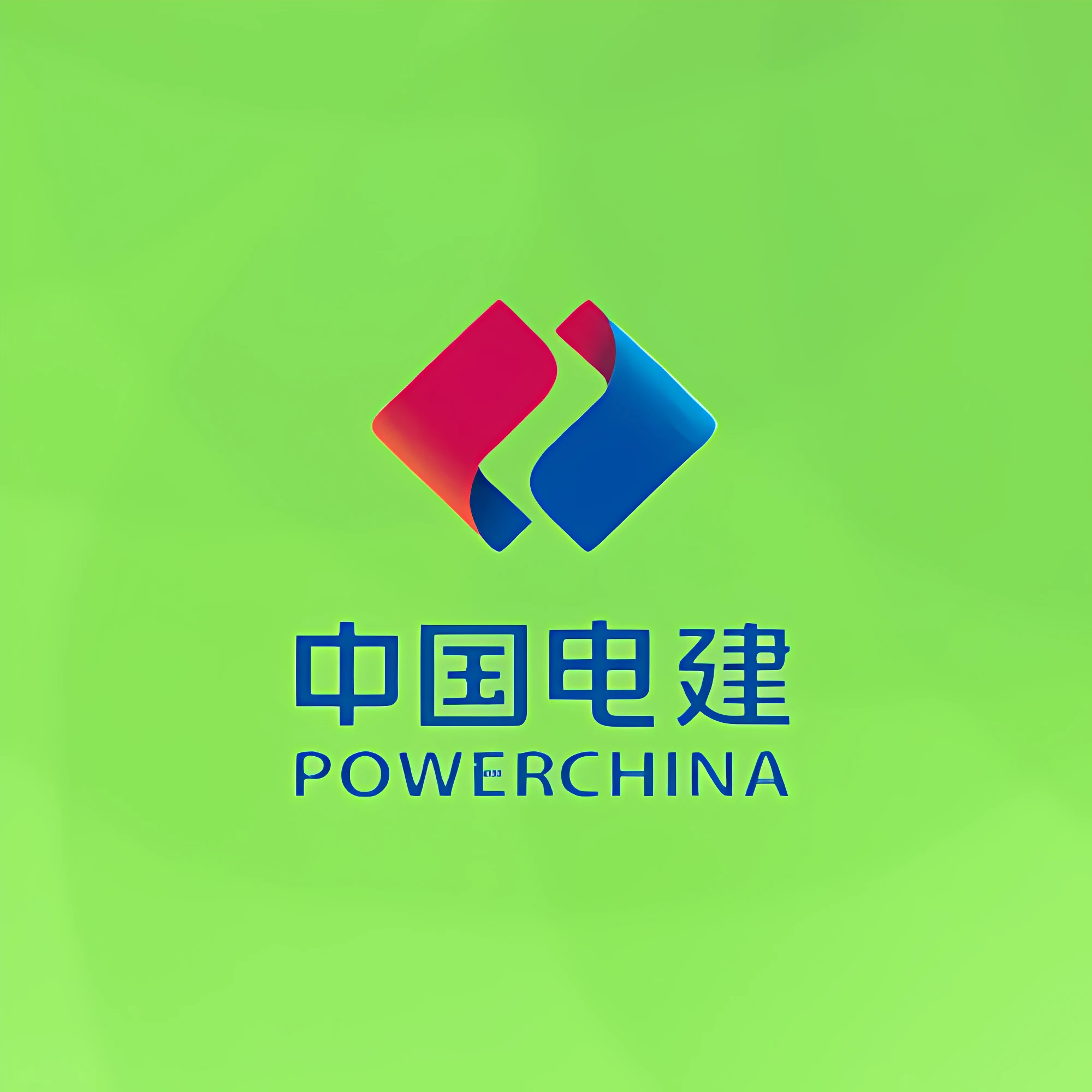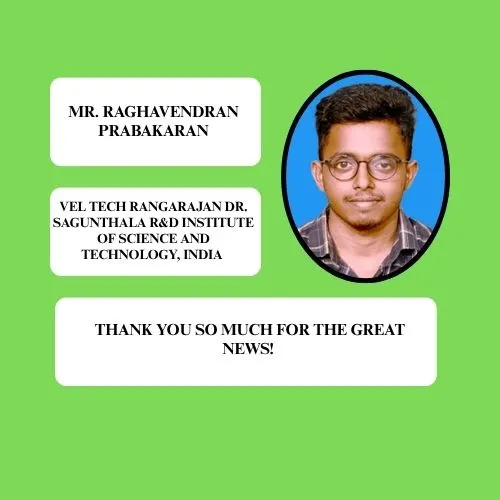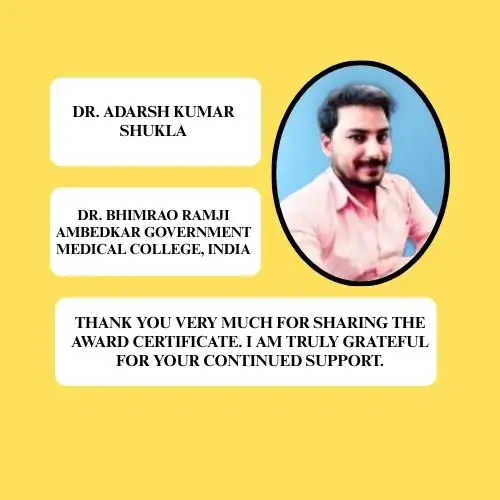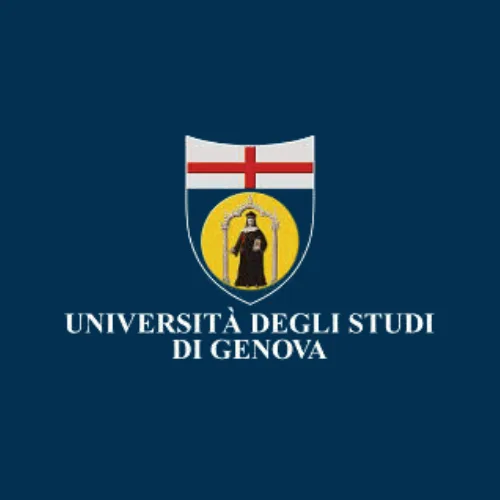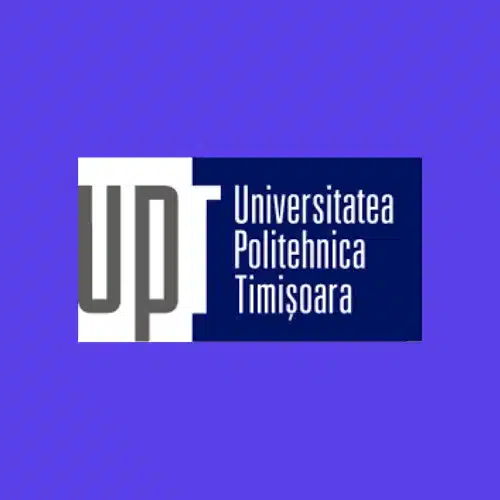International Research
Excellence Awards –
Book of Award

About the Event
About the Award
The "International Research Excellence Awards-Book of Award" celebrates and documents outstanding achievements in the field of research on a global scale. This serves as a recognition platform to honor individuals, teams, and institutions that have demonstrated exceptional contributions and advancements in various areas of research and innovation. The International Research Excellence Awards-Book of Award is a tribute to the dedication, hard work, and groundbreaking discoveries of researchers, scientists, scholars, and innovators from around the world.
What does the Award include
The profile of the award winners of each category be listed on our website and it will be maintained forever.
The certificate, medal, and Memento, and photographs will be a testimony. Further, this recognition and additional proof of hard work and achievements must be globally accessible for Researchers and hence will be available online 24/7.
It’s an indicator of success Enhances the reputation improves the benchmark –it’s a matter of pride – Motivation – Raises the visibility of the success.
Theme
Theme
This book takes readers on a journey behind the scenes, shedding light on the personal sacrifices, triumphs, and struggles of award recipients. From the relentless pursuit of excellence to the transformative power of recognition, "Beyond the Trophy" explores the deeper meaning and impact of awards on individuals and their respective fields.
Objectives
Objectives
Promoting Excellence: The awards aim to highlight and celebrate research books that demonstrate excellence in research, writing, and scholarly contribution. By recognizing exceptional works, they encourage and inspire authors to strive for high standards of quality in their research publications.
Encouraging Innovation: The awards seek to encourage innovative research that pushes the boundaries of knowledge and introduces new perspectives, methodologies, and approaches. They aim to promote groundbreaking and transformative research that has the potential to make a significant impact in respective disciplines.
Fostering Collaboration: These awards often encourage interdisciplinary research and collaboration by recognizing research books that bridge multiple fields and integrate diverse perspectives. By doing so, they promote cross-disciplinary dialogue and encourage scholars to explore new avenues of inquiry.
Promoting visibility and recognition: Winning an International Research Excellence Awards-Book of Award can provide significant recognition and visibility for a researcher or research team, helping to further their careers and increase opportunities for collaboration and funding.
Organizers
Organizers
Academic Institutions: Universities and research institutions often organize research book awards to recognize the scholarly achievements of their faculty, researchers, and affiliated authors. These awards may be specific to a particular discipline or cover a range of fields.
Professional Associations and Societies: Professional associations and societies in various fields of study organize research book awards to honor outstanding contributions to their respective disciplines. These organizations aim to promote excellence and advance knowledge within their specific fields of expertise.
Publishers and Publishing Organizations: Publishing houses and organizations dedicated to scholarly publishing may organize research book awards to recognize exceptional works in their publication portfolios. These awards may cover a wide range of academic disciplines and aim to promote high-quality research publications.
Date and location
International Research Excellence Awards-Book of Award, Organized by ScienceFather group.
32nd Edition of International Research Excellence Awards – Book of Award | 26–27 January 2026 | Bangkok, Thailand
33rd Edition of International Research Excellence Awards – Book of Award | 27–28 February 2026 | Singapore, Singapore
34th Edition of International Research Excellence Awards – Book of Award | 27–28 March 2026 | Tokyo, Japan
35th Edition of International Research Excellence Awards – Book of Award | 29–30 April 2026 | Rome, Italy
36th Edition of International Research Excellence Awards – Book of Award | 26–27 May 2026 | Kuala Lumpur, Malaysia
37th Edition of International Research Excellence Awards – Book of Award | 28–29 June 2026 | Paris, France
38th Edition of International Research Excellence Awards – Book of Award | 29–30 July 2026 | London, United Kingdom
39th Edition of International Research Excellence Awards – Book of Award | 27–28 August 2026 | Sydney, Australia
40th Edition of International Research Excellence Awards – Book of Award | 26–27 September 2026 | Ho Chi Minh City, Vietnam
41st Edition of International Research Excellence Awards – Book of Award | 28–29 October 2026 | Istanbul, Turkey
42nd Edition of International Research Excellence Awards – Book of Award | 29–30 November 2026 | Dubai, United Arab Emirates
43rd Edition of International Research Excellence Awards – Book of Award | 26–27 December 2026 | Los Angeles, USA
How to Apply
How to Apply
The Candidates with eligibility can click the "Nominate /Submit Your Profile (CV) Now" button and fill up the online submission form and Submit it.
This section describes the total Research Awards processes in step by steps:
- Received Nomination documents will be sent for the screening process
- Acknowledgment intimation via email will be communicated to the Nominee
- The team may ask the proof for the credits mentioned in the Resume.
- Cross verifying the documents submitted & forwarding it to the Committee.
- The selected candidate indicated through email. Also, the selected nominees will be checked anytime on the website track of my submission.
- Event and Celebration Registration
- Release of the winners list in the official web page
- Award presentation ceremony
- Release of the Award winners and his profile Report.
Registration
Registration Details
Registration Covers
- An exclusive web page for a highly rated profile of the award winners will always be available online.
- Participation in Award event Session and Keynote session.
- Certificate, Memento, and Photographs.
- Event and Celebration Registration
- Release of the winners list in the official web page
- Award presentation ceremony
- Release of the Award winners and his profile Report.
Registration Procedure
Click the “Register Now” button at the conference page and enter your Entry ID in the Search Box
Your Submissions will be listed on that page. You can find the Register Now link beside your submission. Click the link and now you will be redirected to the Conference registration form where you can make your registration using credit/debit cards
Committee Members
Committee Members

Ms. Luanying Li
University of Macau, Macau

Mr. Vikash Saini
Malaviya National Institute of Technology, Jaipur

Dr. Miguel Angel Perez Rodriguez
Hospital del Niño Poblano, Mexico

Dr. Olumayowa IYANDA
Afe Babalola University, Ado-Ekiti

Mr. Ayomide Afolabi
Jovah Farm, Nigeria

Dr. Maaz Ahmad
Tashkent State University of Economics, Uzbekistan
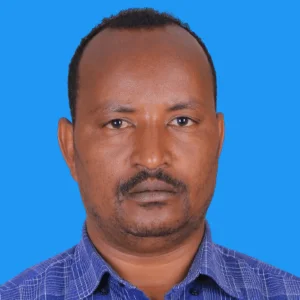
Dr. Tadele Buraka
Addis Ababa University, Ethiopia

Mr. Welela Meka
Organic chemistry lecturer in Mattu University, Ethiopia

Mr. Kanbiro Gedeno
Arba Minch University, Ethiopia

Mr. Tomas Yeheyis Ferede
Hawassa University , Ethiopia

Assoc Prof Dr. Deresse Daka
HAWASSA UNIVERSITY , Ethiopia
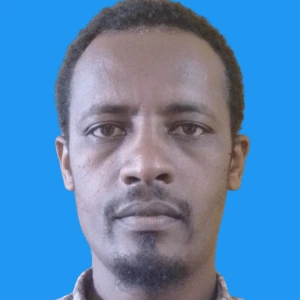
Mr. Fekede Sileshi
Jimma University , Ethiopia

Mr. Bantalem Tilaye Atinafu
School of Nursing and Midwifery, Asrat Weldeyes Health Science Campus, Debre Berhan University, Debre Berhan, Ethiopia

Mr. Abayneh Fantaye
Debre Tabor University , Ethiopia
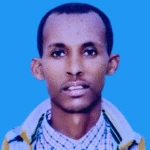
Mr. Binega Derebe
Injibara University

Dr. Sandeep Eswaran
Saveetha Dental College and Hospital | India

Mr. Amanuel Tadase
Oda Bultum University | Ethiopia
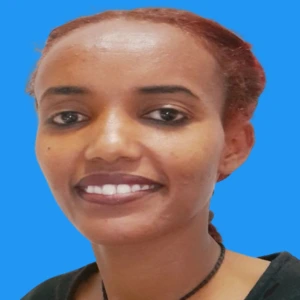
Ms. Trhas Kahsay
Botswana International University Of Science and Technology | Botswana

Dr. Dawit Dibekulu
Bahir Dar University | Ethiopia

Mr. Tsadiku Setegne Dessie
Woldia University | Ethiopia

Assoc Prof Dr. Wenbing Li
Jiangnan university | China

Assist Prof Dr. Getachew Alamnie
Mekdela Amba University | Ethiopia

Dr. Okechukwu Obulezi
Nnamdi Azikiwe University | Nigeria

Mr. Lateef Adamolekun
Federal University of Technology, Akure | Nigeria

Dr. Simeon Ikechukwu Egba
Kampala International University | Uganda

Mr. Ridwan Salaam
University of Ibadan | Nigeria
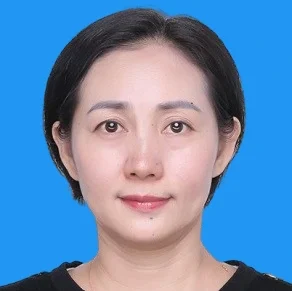
Prof. Xiaoli Wu
Nanjing University of Science and Technology | China

Prof. Bita Mashayekhi
University of Tehran | Iran

Dr. Hossein Shabanali Fami
University of Tehran | Iran

Prof. Dr. Asgar Ebadollahi
University of Mohaghegh Ardabili | Iran

Prof. Dr. Mahdy Hamed
New Valley University | Egypt

Mr. Regasa Yadeta Sembeta
Mattu University | Ethiopia

Dr. Emmanuel Ajah
Nigeria Communication Satellite Limited | Nigeria

Mr. Asadullah Farahmand
Technical University of Darmstadt | Germany

Dr. Seyyed Ali Zendehbad
Islamic Azad University, Mashhad | Iran
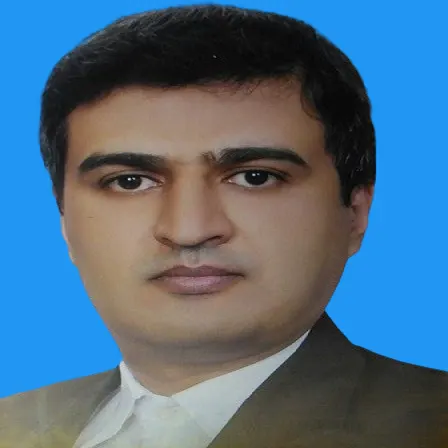
Assoc. Prof. Dr. Keivan Narooei
K. N. Toosi University of Technology | Iran

Mr. Zemenu Adimas
Bahir Dar University Institute of Technology | Ethiopia

Mr. Koat Jing Riek
Gambella University | Ethiopia

Dr. Yohannes Seifu Berego
Hawassa University | Ethiopia

Mr. Nega Belay
Bahir Dar University | Ethiopia

Mr. Zenebe Reta Roba
Mattu Univesrity | Ethiopia

Mr. Tazebew Dires Kassie
Debre Markos University | Ethiopia

Mr. Yohannes Shuka Jara
Borana University | Ethiopia

Dr. Addisu Workiye
Wollo University | Ethiopia

Assist. Prof. Dr. Tolasa Tamasgen
Bonga University | Ethiopia

Dr. Dereje Diriba
Dilla University | Ethiopia

Dr. Uzma Parveen Shaikh
Dr. Rafiq Zakaria College for Women | India

Ms. Ikram Moulay
Korea Advanced Institute of Science & Technology | South Korea
Instructions
General Instructions to Nominees
- The candidates with proper eligibility are requested to submit the online nomination form in order to get nominated for the award
- If your nomination is accepted by our Judges, we will send you an email regarding your profile selection
- Awardees must register for the event
Terms & Conditions
Terms & Conditions
Terms & Conditions Policy was last updated on June 25, 2022.
Privacy Policy
This awards Customer personal information for our legitimate business purposes, to process and respond to inquiries, and provide our services, to manage our relationship with editors, authors, institutional clients, service providers, and other business contacts, to market our services and subscription management. We do not sell, rent/ trade your personal information to third parties.
Relationship
Sciencefather awards Operate a Customer Association Management and email list program, which we use to inform customers and other contacts about our services, including our publications and events. Such marketing messages may contain tracking technologies to track subscriber activity relating to engagement, demographics, and other data, and to build subscriber profiles.
Disclaimer
All editorial matters published on this website represent the opinions of the authors and not necessarily those of the Publisher with the publications. Statements and opinions expressed do not represent the official policies of the relevant associations unless so stated. Every effort has been made to ensure the accuracy of the material that appears on this website. Please ignore, however, that some errors may occur.
Responsibility
Delegates are personally responsible for their belongings at the venue. The Organizers will not be held accountable for any stolen or missing items belonging to Delegates, Speakers, or Attendees; due to any reason whatsoever.
Insurance
Registration fees that do not include insurance of any kind.
Press and Media
Press permission must be getting from the Book Awards Conferences Organizing Committee before the event. The press will not quote speakers or delegates unless they have obtained their approval in writing. This conference is not associated with any commercial meeting company.
Transportation
Please note that any (or) all traffic and parking is the responsibility of the registrant.
Requesting an Invitation Letter
For security purposes, the letter of invitation will be sent only to those individuals who had registered for the conference. Once your registration is complete, please contact book@bookofaward.com to request a personalized letter of invitation.
Cancellation Policy
If cancel this event for any reason, you will receive a credit for 100% of the registration fee paid. You may use this credit for another Primary healthcare award which must occur within one year from the date of cancellation.
Postponement Policy
If postpone an event for any reason and you are unable or indisposed to attend on rescheduled dates, you will receive a credit for 100% of the registration fee paid. You may use this credit for another Book Awards event which must occur within one year from the date of postponement.
Transfer of registration
All fully paid registrations are transferable to other persons from the same organization if the registered person is unable to attend the event. The registered person must make transfers in writing to book@bookofaward. com. Details must include the full name of an alternative person, their title, contact phone number, and email address. All other registration details will be assigned to the new person unless otherwise specified. Registration can be transferred from one conference to another conference of Book Awards if the person is unable to attend one of the meetings. However, Registration cannot be transferred if it will be intimated within 14 days of the particular conference. The transferred registrations will not be eligible for Refund.
Visa Information
Keeping given the increased security measures, we would like to request all the participants to apply for Visa as soon as possible. Book Awards will not directly contact embassies and consulates on behalf of visa applicants. All delegates or invitees should apply for Business Visa only. Important note for failed visa applications: Visa issues cannot come under the consideration of the cancellation policy of Book Awards, including the inability to obtain a visa.
Refund Policy
Regarding refunds, all bank charges will be for the registrant's account. All cancellations or modifications of registration must make in writing to book@bookofaward.com
If the registrant is unable to attend and is not in a position to transfer his/her participation to another person or event, then the following refund arrangements apply:
Keeping given advance payments towards Venue, Printing, Shipping, Hotels and other overheads, we had to keep Refund Policy is as following conditions,
Before 60 days of the Conference: Eligible for Full Refund less $100 Service Fee
Within 60-30 days of Conference: Eligible for 50% of payment Refund
Within 30 days of Conference: Not eligible for Refund
E-Poster Payments will not be refunded.
Refunds for eligible requests will typically take between 30 to 90 days to be received after the date of the event. We strive to process refunds as expeditiously as possible, but this timeframe allows us to ensure accuracy and compliance with our policies (Date of updated October,04 2023)
Accommodation Cancellation Policy
Accommodation Providers such as hotels have their cancellation policies, and they generally apply when cancellations are made less than 30 days before arrival. Please contact us as soon as possible if you wish to cancel or amend your accommodation. Book Awards will advise the cancellation policy of your accommodation provider, before withdrawing or changing your booking, to ensure you are fully aware of any non-refundable deposits.
Sponsorship
Sponsorship
Sciencefather warmly invites you to sponsor or exhibit at International Conference. We expect participants more than 200 numbers for our International conference will provide an opportunity to hear and meet/ads to Researchers, Practitioners, and Business Professionals to share expertise, foster collaborations, and assess rising innovations across the world in the core area of mechanical engineering.
Sponsorship Details
Diamond Sponsorship
- Acknowledgment during the opening of the conference
- Complimentary Booth of size 10 meters square
- Four (4) delegate’s complimentary registrations with lunch
- Include marketing document in the delegate pack
- Logo on Conference website, Banners, Backdrop, and conference proceedings
- One exhibition stand (1×1 meters) for the conference
- One full cover page size ad in conference proceedings
- Opportunities for Short speech at events
- Opportunity to sponsors conference kit
- Opportunity to sponsors conference lanyards, ID cards
- Opportunity to sponsors conference lunch
- Recognition in video ads
- 150-word company profile and contact details in the delegate pack
Platinum Sponsorship
- Three (3) delegate’s complimentary registrations with lunch
- Recognition in video ads
- Opportunity to sponsors conference lunch
- Opportunity to sponsors conference lanyards, ID cards
- Opportunity to sponsors conference kit
- Opportunities for Short speech at events
- One full-page size ad in conference proceedings
- One exhibition stand (1×1 meters) for the conference
- Logo on Conference website, Banners, Backdrop, and conference proceedings
- Include marketing document in the delegate pack
- Complimentary Booth of size 10 meters square
- Acknowledgment during the opening of the conference
- 100-word company profile and contact details in the delegate pack
Gold Sponsorship
- Two (2) delegate’s complimentary registrations with lunch
- Opportunities for Short speech at events
- Logo on Conference website, Banners, Backdrop, and conference proceedings
- Include marketing document in the delegate pack
- Complimentary Booth of size 10 meters square
- Acknowledgment during the opening of the conference
- 100-word company profile and contact details in the delegate pack
- ½ page size ad in conference proceedings
Silver Sponsorship
- Acknowledgment during the opening of the conference
- One(1) delegate’s complimentary registrations with lunch
- Include marketing document in the delegate pack
- Logo on Conference website, Banners, Backdrop, and conference proceedings
- ¼ page size ad in conference proceedings
- 100-word company profile and contact details in the delegate pack
Individual Sponsorship
- Acknowledgment during the opening of the conference
- One(1) delegate’s complimentary registrations with lunch
Sponsorship Registration Fees
| Details | Registration fees |
| Diamond Sponsorship | USD 2999 |
| Platinum Sponsorship | USD 2499 |
| Gold Sponsorship | USD 1999 |
| Silver Sponsorship | USD 1499 |
| Individual Sponsorship | USD 999 |
Exhibitions
Exhibitions
Exhibit your Products & Services
Exhibit your Products & Services in our Event of the International Research Excellence Awards-Book of Award. Exhibitors are welcomed from Commercial and Non-Commercial Organizations related to Nano Materials and Nano Technology.
The best platform to develop new partnerships & collaborations.
Best location to speed up your route into every territory in the World.
Our exhibitor booths were visited 4-5 times by 80% of the attendees during the conference.
Network development with both Academia and Business.
Exhibitor benefits
Exhibit booth of Size-3X3 sqm.
Promotion of your logo/Company Name/Brand Name through the conference website.
Promotional video on company products during the conference (Post session and Breaks).
Logo recognition in the Scientific program, Conference banner, and flyer.
One A4 flyer inserts into the conference kit.
An opportunity to sponsor 1 Poster Presentation Award.
Subject Track
Subject Track
Agricultural and Biological Sciences | Arts and Humanities | Biochemistry | Genetics and Molecular Biology | Business | Management and Accounting | Chemical Engineering | Chemistry | Computer Science | Decision Sciences | Earth and Planetary Sciences | Economics | Econometrics, and Finance| Energy | Engineering | Environmental Science | Immunology and Microbiology | Materials Science | Mathematics | Medicine and Dentistry | Neuroscience | Nursing and Health Professions | Pharmacology | Toxicology and Pharmaceutical Science | Physics and Astronomy | Psychology | Social
Details of Subject Tracks
Details of Subject Tracks
1. Agricultural and Biological Sciences
If the focus of the International Research Excellence Awards-Book of Award is on Agricultural and Biological Sciences, the target audience could include:
- Agricultural and biological scientists
- Researchers and faculty from universities and research institutions
- Agricultural and biological engineers and technologists
- Plant and animal breeders and geneticists
- Environmental scientists and ecologists
- Soil and water resource management specialists
- Representatives from government agencies and non-governmental organizations involved in agriculture and the environment
- Business professionals involved in Agri-biotech and agri-business
- Investors and venture capitalists interested in funding agricultural and biological science innovations
- Students and postdoctoral fellows in agriculture, biology and related fields.
The conference could focus on a wide range of topics, including but not limited to, advances in crop and animal breeding, precision agriculture, sustainable agriculture, soil and water management, Agri-biotechnology, food security, and the impact of climate change on agriculture and the environment. The objective of the conference would be to provide a platform for exchanging ideas and knowledge, and for identifying opportunities for collaboration and investment in the field of agricultural and biological sciences.
2. Arts and Humanities
If the focus of the International Research Excellence Awards-Book of Award is on Arts and Humanities, the target audience could include:
- Scholars and researchers in the arts and humanities
- Faculty members from universities and research institutions
- Artists and creative professionals
- Technologists and engineers interested in the intersection of technology and the arts
- Museum curators and cultural heritage professionals
- Representatives from government agencies and non-profit organizations involved in cultural preservation and promotion
- Business professionals involved in the arts and creative industries
- Students and postdoctoral fellows in arts, humanities, and related fields
- Critics and art/culture journalists
- Investors and philanthropists interested in supporting innovation in the arts and humanities.
The conference could focus on a wide range of topics, including but not limited to, the use of technology in the arts, digital humanities, interdisciplinary approaches to the arts and humanities, the role of the arts in society and culture, and the preservation of cultural heritage. The objective of the conference would be to provide a platform for exchanging ideas and knowledge, and for identifying opportunities for collaboration and investment in the field of arts and humanities.
3. Biochemistry
If the focus of the IInternational Research Excellence Awards-Book of Award is on Biochemistry, the target audience could include:
- Biochemists and molecular biologists
- Researchers and faculty members from universities and research institutions
- Medical and healthcare professionals
- Scientists and engineers from biotechnology and pharmaceutical companies
- Students and postdoctoral fellows in biochemistry and related fields
- Investors and venture capitalists interested in funding biotechnology innovations
- Representatives from government agencies and non-profit organizations involved in biotechnology and healthcare
- Business professionals involved in the biotechnology and pharmaceutical industries
- Critics and journalists writing about biochemistry and biotechnology.
The conference could focus on a wide range of topics, including but not limited to, advances in molecular biology, protein science, structural biology, metabolic pathways, systems biology, and biotechnology applications. The objective of the conference would be to provide a platform for exchanging ideas and knowledge, and for identifying opportunities for collaboration and investment in the field of biochemistry.
4. Genetics and Molecular Biology
If the focus of the International Research Excellence Awards-Book of Award is on Genetics and Molecular Biology, the target audience could include:
- Geneticists and molecular biologists
- Researchers and faculty members from universities and research institutions
- Medical and healthcare professionals
- Scientists and engineers from biotechnology and pharmaceutical companies
- Students and postdoctoral fellows in genetics, molecular biology and related fields
- Investors and venture capitalists interested in funding biotechnology innovations
- Representatives from government agencies and non-profit organizations involved in biotechnology and healthcare
- Business professionals involved in the biotechnology and pharmaceutical industries
- Critics and journalists writing about genetics and molecular biology.
The conference could focus on a wide range of topics, including but not limited to, advances in genetic engineering, genomics, genetics, gene regulation, DNA repair, and biotechnology applications. The objective of the conference would be to provide a platform for exchanging ideas and knowledge, and for identifying opportunities for collaboration and investment in the field of genetics and molecular biology.
5. Business
If the focus of the International Research Excellence Awards-Book of Award is on Business, the target audience could include:
- Business professionals, including executives, managers, and entrepreneurs
- Investors and venture capitalists
- Representatives from government agencies and non-profit organizations involved in innovation and entrepreneurship
- Faculty members from universities and business schools
- Economists and business strategists
- Legal and intellectual property specialists
- Science and technology commercialization professionals
- Business development and marketing experts
- Students and postdoctoral fellows in business and related fields
- Critics and journalists writing about business and innovation.
The conference could focus on a wide range of topics, including but not limited to, innovation management, technology commercialization, entrepreneurship, venture capital, intellectual property, and the intersection of business and science. The objective of the conference would be to provide a platform for exchanging ideas and knowledge, and for identifying opportunities for collaboration and investment in the field of business and innovation.
6. Management and Accounting
If the focus of the International Research Excellence Awards-Book of Award is on Management and Accounting, the target audience could include:
- Business professionals, including executives, managers, and entrepreneurs
- Investors and venture capitalists
- Representatives from government agencies and non-profit organizations involved in innovation and entrepreneurship
- Faculty members from universities and business schools
- Management consultants and strategists
- Accountants and financial analysts
- Legal and intellectual property specialists
- Science and technology commercialization professionals
- Students and postdoctoral fellows in business and related fields
- Critics and journalists writing about business and innovation.
The conference could focus on a wide range of topics, including but not limited to, innovation management, technology commercialization, entrepreneurship, venture capital, intellectual property, and the intersection of business and science. The objective of the conference would be to provide a platform for exchanging ideas and knowledge, and for identifying opportunities for collaboration and investment in the field of business and innovation.
In addition, specific to management and accounting, the conference could also explore topics such as strategic planning, risk management, performance measurement and evaluation, financial management, and accounting for new and emerging technologies.
7. Chemical Engineering
If the focus of the International Research Excellence Awards-Book of Award is on Chemical Engineering, the target audience could include:
- Chemical engineers
- Researchers and faculty members from universities and research institutions
- Scientists and engineers from chemical, petrochemical, and pharmaceutical companies
- Students and postdoctoral fellows in chemical engineering and related fields
- Investors and venture capitalists interested in funding innovations in chemical engineering
- Representatives from government agencies and non-profit organizations involved in chemical engineering and environmental sustainability
- Business professionals involved in the chemical and energy industries
- Critics and journalists writing about chemical engineering and related topics.
The conference could focus on a wide range of topics, including but not limited to, process design, optimization, and control, chemical reaction engineering, process safety and sustainability, energy efficiency, materials science, and bioprocess engineering. The objective of the conference would be to provide a platform for exchanging ideas and knowledge, and for identifying opportunities for collaboration and investment in the field of chemical engineering.
8. Chemistry
The International Research Excellence Awards-Book of Award - Chemistry is a forum for researchers and scientists to present and discuss their latest findings, innovations, and advancements in the field of chemistry. The conference typically includes plenary talks by invited speakers, poster presentations, and panel discussions on current topics and future trends in chemistry. The conference aims to provide a platform for exchange of ideas and collaboration among scientists from different countries, and to promote interdisciplinary research in the field of chemistry.
The conference may cover a wide range of topics in chemistry, including analytical chemistry, organic chemistry, physical chemistry, biochemistry, computational chemistry, green chemistry, and materials chemistry, among others. Participants will have the opportunity to hear about cutting-edge research and development in the field, and to network with other scientists, researchers, and industry professionals.
Whether you are a researcher, scientist, student, or industry professional, the International Research Excellence Awards-Book of Award - Chemistry is an excellent opportunity to stay up-to-date on the latest advancements and developments in the field, and to make new connections with other professionals in the field.
9. Computer Science
The International Research Excellence Awards-Book of Award- Computer Science is a forum for experimenters, scientists, and interpreters to present and bandy their rearmost findings, inventions, and advancements in the field of computer wisdom. The conference generally includes keynote speeches, specialized sessions, bill donations, and panel conversations on a wide range of motifs related to computer wisdom. The conference provides an occasion for attendees to learn about slice- edge exploration, exchange ideas with leading experts in the field, and network with other professionals from around the world.
The conference may cover colorful motifs in computer wisdom, including artificial intelligence, machine literacy, data wisdom, computer plates, computer vision, mortal- computer commerce, software engineering, and more. Attendees can anticipate to hear about the rearmost developments in these areas and have the occasion to share in conversations and debates about the unborn direction of computer wisdom exploration.
Whether you're a computer wisdom experimenter, scientist, pupil, or guru, the International Research Excellence Awards-Book of Award- Computer Science is a precious occasion to stay over- to- date on the rearmost advancements and developments in the field, and to make new connections with other professionals in the field
10. Decision Sciences
The International Research Excellence Awards-Book of Award- Decision lore's is a forum for experimenters, interpreters, and scholars to present and bandy their rearmost findings, inventions, and advancements in the field of decision lore's.
The conference generally includes keynote speeches, specialized sessions, bill donations, and panel conversations on a wide range of motifs related to decision lore's. The conference provides an occasion for attendees to learn about slice- edge exploration, exchange ideas with leading experts in the field, and network with other professionals from around the world.
The conference may cover colorful motifs in decision lore's, including operations exploration, operation wisdom, artificial engineering, data analytics, fine modeling, and more. Attendees can anticipate to hear about the rearmost developments in these areas and have the occasion to share in conversations and debates about the unborn direction of decision lore's exploration.
Whether you're a experimenter, guru, or pupil in decision lore's, the International Research Excellence Awards-Book of Award- Decision lore's is a precious occasion to stay over- to- date on the rearmost advancements and developments in the field, and to make new connections with other professionals in the field.
11.Earth and Planetary Sciences
Earth and planetary science is a broad and interdisciplinary field that encompasses the study of the Earth, other planets in our solar system, and the processes that have shaped and continue to shape our planet and the universe. Earth and planetary scientists use a variety of tools and techniques, including observational, experimental, and computational methods, to better understand the Earth's structure, composition, and evolution.
The following are some of the topics that are typically covered in the field of Earth and planetary science:
- Geology: the study of the Earth's structure, composition, and evolution, including plate tectonics, earthquakes, volcanoes, and rock formations.
- Geophysics: the study of the Earth's physical properties, including its magnetic, gravitational, and electrical fields, as well as its seismic and geothermal activity.
- Geochemistry: the study of the chemical composition and processes of the Earth and other planetary bodies.
- Climatology: the study of Earth's climate and the factors that influence it, including solar radiation, atmospheric composition, and ocean currents.
- Oceanography: the study of the world's oceans, including their physical, chemical, and biological properties, and the processes that govern them.
- Planetary science: the study of other planets in our solar system, including their structure, composition, and evolution, and the processes that shape them.
- Astrobiology: the study of the origin, evolution, and distribution of life in the universe, including the search for life on other planets.
Earth and planetary science is an important field with numerous practical applications, including natural resource exploration, disaster prediction and response, and the study of global climate change and its impacts.
12. Economics
Economics is the social wisdom that studies the product, distribution, exchange, and consumption of goods and services. It deals with the colorful factors that impact the frugality, similar as force and demand, affectation, request structures, and government programs.
There are two main branches of economics microeconomics and macroeconomics. Microeconomics studies the profitable geste of individualities, enterprises, and diligence and how they interact in specific requests. Macroeconomics, on the other hand, looks at the overall performance of the frugality, similar as profitable growth, severance, and affectation.
Economics plays a pivotal part in helping individualities, businesses, and governments make informed opinions by furnishing a methodical way of assaying the choices they face and the consequences of those choices. By studying economics, people can more understand how the frugality works, how to make the utmost of scarce coffers, and how to promote profitable growth and stability.
13. Economics, and Finance
Econometrics is a branch of economics that uses statistical and fine styles to dissect profitable data and test profitable propositions. It involves the development of statistical models that can be used to prognosticate profitable trends and make informed opinions grounded on profitable data.
Finance, on the other hand, is the study of how individualities and associations manage their fiscal coffers. It involves the analysis of fiscal requests and institutions, investment and portfolio operation, and the valuation of fiscal means.
Econometrics and finance are interrelated fields that frequently lap. For illustration, econometric ways are used in finance to help make investment opinions, measure threat, and value fiscal instruments. On the other hand, finance provides the data and the practical operations that econometricians use to develop and test their models.
Both econometrics and finance are important fields of study for individualities interested in pursuing careers in finance, banking, investments, and other affiliated fields. These disciplines help individualities understand the complications of the global frugality and make informed opinions about fiscal planning and investment strategies.
14. Energy
Energy is a pivotal resource that powers ultramodern society. It's a property of matter and can take colorful forms, including thermal, mechanical, electrical, and chemical energy. Energy is demanded to produce goods, power homes and businesses, and give transportation.
There are numerous sources of energy, including fossil energies similar as coal, oil painting, and natural gas, as well as renewable sources similar as solar, wind, and hydro power. The use of energy has significant impacts on the terrain and the global frugality, making the effective and sustainable use of energy a crucial challenge for policymakers and businesses.
The energy sector is complex and multi-faceted, with numerous different factors including product, distribution, storehouse, and consumption. The energy sector is also heavily regulated, with governments around the world enforcing programs aimed at reducing hothouse gas emigrations, promoting energy effectiveness, and adding the use of renewable energy sources.
Studying energy is important for understanding the profitable, environmental, and geopolitical counteraccusations of our use of energy and for chancing ways to meet the world's growing energy requirements in a sustainable and responsible manner. It encompasses a wide range of subjects, including energy economics, energy policy, energy requests, and energy technologies.
15. Engineering
Engineering is the application of scientific, mathematical, and practical knowledge to design, build, and maintain structures, machines, systems, and processes. Engineering plays a critical role in shaping our modern world, as engineers use their skills and expertise to design and create the products, technologies, and infrastructure that make our daily lives possible.
Engineering is a broad field that encompasses many different disciplines, including civil, mechanical, electrical, and chemical engineering. Civil engineers design and build the infrastructure that supports our communities, such as roads, bridges, and buildings. Mechanical engineers design and develop machines, from small household appliances to large industrial systems. Electrical engineers work on the design and development of electrical systems, including power generation, transmission, and distribution. Chemical engineers use their knowledge of chemistry to design processes for producing chemicals, fuels, and other products.
Engineering requires a strong foundation in mathematics and the natural sciences, as well as an understanding of engineering principles and design. Engineering also requires creativity and problem-solving skills, as engineers must find innovative solutions to complex challenges.
Studying engineering prepares individuals for a variety of challenging and rewarding careers, as well as for making significant contributions to society. Whether working in industry, government, or academia, engineers play a critical role in driving technological progress and improving our quality of life.
16. Environmental science
Environmental science is the interdisciplinary study of the natural world and the impact of human activities on it. It encompasses the physical, chemical, and biological processes that occur in the environment, as well as the social, economic, and political factors that influence environmental policies and decision-making.
Environmental scientists study a wide range of topics, including air and water pollution, climate change, biodiversity, natural resource management, and sustainability. They use scientific methods and data to understand the complexities of the environment and the impact of human activities on it.
One of the main goals of environmental science is to find ways to protect and preserve the environment for future generations. This involves developing and implementing policies, technologies, and practices that promote sustainable use of natural resources, reduce waste and pollution, and mitigate the impact of human activities on the environment.
Environmental science is a rapidly growing field that is essential for addressing some of the most pressing environmental challenges facing our world today. It requires a strong foundation in the natural sciences, as well as an understanding of the social, economic, and political factors that influence environmental decision-making. Studying environmental science prepares individuals for careers in government agencies, non-profit organizations, research institutions, and other organizations working to protect the environment and promote sustainability.
17. Immunology and microbiology
Immunology and microbiology are two related fields that study the interactions between the body's immune system and microorganisms, such as bacteria, viruses, fungi, and parasites.
Immunology is the study of the immune system, its components, and how it defends the body against disease-causing agents. Immunologists investigate how the immune system recognizes and responds to foreign substances, such as viruses and bacteria, and how it can be manipulated to prevent or treat disease. They also study the underlying mechanisms of immunological disorders, such as allergies and autoimmune diseases.
Microbiology, on the other hand, is the study of microorganisms and their interactions with the environment and with other living organisms. Microbiologists investigate the structure, function, and behavior of microorganisms and their role in causing disease. They also study the interactions between microorganisms and their hosts, and how they can be controlled or manipulated to promote health.
The fields of immunology and microbiology are closely intertwined, as the body's immune response to microorganisms is a crucial aspect of both the pathogenesis of disease and the development of effective treatments.
Studying immunology and microbiology is important for understanding the complex interactions between the body and microorganisms, and for developing strategies to prevent, diagnose, and treat infectious diseases. These disciplines have wide-ranging applications in medicine, biotechnology, agriculture, and other fields, and play a critical role in advancing our knowledge of the biological world and improving human health.
18. Materials Science
Materials science is the study of materials and their properties, structures, and behaviors. It is a multidisciplinary field that combines elements of physics, chemistry, biology, and engineering to understand how the properties of materials arise from their atomic and molecular structure, and how they can be controlled and manipulated to develop new materials with specific properties.
Materials scientists study a wide range of materials, including metals, polymers, ceramics, and composites. They investigate how materials respond to different conditions, such as temperature, stress, and exposure to various environments, and how they can be processed and manufactured into useful products.
Materials science has many practical applications, as the properties of materials play a critical role in the design and performance of a wide range of products and technologies, including electronics, aerospace, energy, and biomedical devices. Materials scientists work to develop new materials with improved performance and new functionalities, and to find ways to sustainably produce and use materials in an environmentally responsible manner.
Studying materials science requires a strong foundation in the physical and chemical sciences, as well as an understanding of materials processing and manufacturing techniques. It is a challenging and dynamic field that provides exciting opportunities for discovery, innovation, and the development of cutting-edge technologies.
19. Mathematics
Mathematics is the study of numbers, quantities, and shapes and the relationships between them. It is a fundamental discipline that has been around for thousands of years and is essential for understanding and solving many of the problems facing our world today.
Mathematics is used in a wide range of fields, including science, engineering, finance, and technology, and it plays a critical role in advancing our understanding of the natural world and the development of new technologies. Some of the most important branches of mathematics include algebra, geometry, calculus, and statistics.
Algebra deals with mathematical symbols and the rules for manipulating those symbols to solve equations and study relationships between variables. Geometry deals with shapes, sizes, and positions of objects in space, and it is used in fields such as architecture, engineering, and computer graphics. Calculus is the study of change and deals with concepts such as derivatives and integrals, which are used in fields such as physics, engineering, and economics. Statistics is the branch of mathematics that deals with the collection, analysis, interpretation, presentation, and organization of data.
Mathematics is a challenging discipline that requires a strong foundation in problem-solving and logical thinking. However, it is also a very rewarding field, as it provides a precise and rigorous way of thinking and can lead to new insights and solutions to complex problems. Studying mathematics prepares individuals for careers in a wide range of fields and for making significant contributions to society.
20. Medicine and Dentistry
Medicine and dentistry are two related fields that focus on the study of the human body and the prevention, diagnosis, and treatment of disease.
Medicine is the branch of healthcare that deals with the diagnosis, treatment, and prevention of illness, disease, and injury. Medical professionals, such as physicians, nurses, and paramedics, work to diagnose and treat patients and to promote health and wellness. Medicine is a rapidly advancing field that incorporates new technologies, such as genetic engineering, nanotechnology, and robotics, and it plays a critical role in improving human health and longevity.
Dentistry is the branch of medicine that focuses on the study, diagnosis, and treatment of conditions and diseases of the oral cavity, including the teeth, gums, and jaws. Dentists and dental hygienists work to maintain oral health, prevent and treat oral diseases, and restore damaged or missing teeth. Dentistry plays a critical role in promoting overall health and wellness, as oral health is closely linked to the health of the rest of the body.
Both medicine and dentistry require a strong foundation in the basic sciences, including anatomy, physiology, and biochemistry, as well as a commitment to continuous learning and professional development. These fields require not only technical expertise, but also strong communication skills, empathy, and a dedication to helping others. The practice of medicine and dentistry is both challenging and rewarding, and it offers the opportunity to make a positive impact on the lives of others.
21. Neuroscience
Neuroscience is the scientific study of the nervous system, including the brain and spinal cord, and how they control behavior and perception. It is a multidisciplinary field that combines elements of biology, psychology, philosophy, computer science, and engineering to understand the complex functions of the brain and nervous system.
Neuroscientists study the anatomy and physiology of the brain, including the structure and function of neurons and the connections between them, as well as the molecular and genetic basis of brain function. They also study the development of the brain, including how experience and environment can shape brain structure and function, and they investigate the neural basis of behavior, perception, and consciousness.
One of the central goals of neuroscience is to understand the mechanisms underlying neurological and psychiatric disorders, such as Alzheimer's disease, Parkinson's disease, depression, and schizophrenia, and to develop new treatments for these conditions. Neuroscience also plays a critical role in advancing our understanding of how the brain processes information and learns, and it has many practical applications, including the development of new technologies for restoring function after injury or disease, and for improving cognitive function and performance.
Studying neuroscience requires a strong foundation in the biological and physical sciences, as well as a deep understanding of the methods used to study the brain and behavior. It is a challenging and rapidly evolving field that offers exciting opportunities for discovery and innovation.
22. Nursing and Health Professions
Nursing and health professions are fields that focus on providing care for individuals and communities to promote health and wellness, prevent disease, and manage illness and injury. They play a critical role in improving the health and quality of life for individuals and communities and are essential to the functioning of healthcare systems.
Nursing is a healthcare profession that focuses on the care of individuals and communities and the promotion of health and wellness. Nurses provide a wide range of services, including patient assessment, diagnosis, and treatment, medication administration, and health promotion and education. They work in a variety of settings, including hospitals, clinics, nursing homes, and schools, and they collaborate with other healthcare professionals to provide comprehensive care to patients.
Health professions encompass a wide range of careers, including physicians, pharmacists, physical therapists, and occupational therapists, among others. These professionals work to diagnose, treat, and prevent health problems, and they play a critical role in promoting health and wellness, managing chronic conditions, and providing care to individuals and communities.
Both nursing and health professions require a strong foundation in the biological and social sciences, as well as a commitment to continuous learning and professional development. These fields also require strong communication and interpersonal skills, empathy, and a dedication to helping others. Nursing and health professions offer rewarding careers with the opportunity to make a positive impact on the lives of others and to advance the field through innovation and research.
23. Pharmacology
Pharmacology is the scientific study of drugs and their interactions with the human body. It encompasses the discovery, development, and evaluation of new drugs, as well as the investigation of their mechanisms of action, therapeutic effects, and side effects.
Pharmacologists study how drugs interact with the body, including the absorption, distribution, metabolism, and excretion of drugs, and the mechanisms by which they produce their therapeutic effects and adverse reactions. They also study the interactions between drugs and the various systems of the body, including the nervous system, cardiovascular system, and immune system, and they use this knowledge to develop new treatments for a wide range of diseases and conditions.
Pharmacology plays a critical role in the development of new medications and treatments for a wide range of medical conditions, including cancer, heart disease, mental illness, and infectious diseases. It also plays a critical role in understanding the actions and side effects of existing drugs and in improving the safety and efficacy of new and existing drugs.
To study pharmacology, one needs a strong foundation in the biological and chemical sciences, as well as a deep understanding of the methods used to study drugs and their effects. It is a rapidly advancing field that offers exciting opportunities for discovery and innovation, as well as the potential to improve human health and well-being.
24. Toxicology and Pharmaceutical
Toxicology is the scientific study of the harmful effects of chemicals and other agents on living organisms and the environment. It encompasses the investigation of the mechanisms by which chemicals and other agents cause adverse effects, as well as the development of methods for assessing and mitigating these effects.
Toxicologists study the effects of chemicals and other agents on human health and the environment, including their effects on the nervous system, reproductive system, immune system, and other body systems. They use this knowledge to develop methods for assessing the potential hazards of chemicals and other agents and to recommend strategies for reducing exposure and minimizing risk.
Pharmaceutical science is the study of the development, production, and evaluation of drugs and other medicinal products. It encompasses a wide range of disciplines, including chemistry, biology, pharmacology, and engineering, and it is concerned with the discovery, design, and evaluation of new drugs, as well as the improvement of existing drugs.
Pharmaceutical scientists work to develop new treatments for a wide range of medical conditions, including cancer, heart disease, mental illness, and infectious diseases. They also work to improve the safety and efficacy of existing drugs, and to understand the mechanisms by which drugs interact with the human body.
Both toxicology and pharmaceutical science require a strong foundation in the biological and chemical sciences, as well as a deep understanding of the methods used to study chemicals and drugs. These fields offer exciting opportunities for discovery and innovation, as well as the potential to improve human health and the environment.
25. Physics and Astronomy
Physics is the study of the fundamental laws of nature that govern the behavior of matter and energy. It encompasses a wide range of phenomena, including motion, energy, force, matter, and the structure of the universe.
Physicists use experiments and mathematical models to study a wide range of phenomena, from the smallest subatomic particles to the largest structures in the universe. They use this knowledge to develop new technologies, such as medical imaging devices, energy production technologies, and computer systems, and to improve our understanding of the universe and our place within it.
Astronomy is the study of the universe beyond our planet, including stars, galaxies, and the origins and evolution of the universe itself. Astronomers use telescopes, satellites, and other instruments to study the stars and other celestial objects, and they use this information to learn about the structure and evolution of the universe, and to search for evidence of life on other planets.
Physics and astronomy are interdisciplinary fields that draw on a wide range of disciplines, including mathematics, engineering, and computer science. They offer exciting opportunities for discovery and innovation, as well as the potential to deepen our understanding of the universe and our place within it. To study physics or astronomy, one needs a strong foundation in mathematics and a deep understanding of the scientific method.
26. Psychology
Psychology is the scientific study of human behavior, thoughts, and emotions. It encompasses a wide range of topics, including perception, cognition, development, personality, abnormal behavior, and social behavior.
Psychologists study a wide range of phenomena, from the basic processes underlying perception and learning, to the development of personality and identity, to the causes and treatment of mental disorders. They use a variety of research methods, including laboratory experiments, surveys, and naturalistic observations, to gather data and test their theories.
Psychology has important practical applications in a wide range of fields, including education, business, law, and health care. For example, psychologists may work in schools to improve educational practices, in businesses to improve organizational performance and employee well-being, in the legal system to assist with investigations and trials, and in health care to help diagnose and treat mental disorders.
To study psychology, one needs a strong foundation in the scientific method and a deep understanding of the theories and concepts in the field. It is a dynamic and rapidly-evolving field that offers exciting opportunities for discovery and innovation, as well as the potential to improve the lives of individuals and society as a whole.
27. Social
The term "social" can refer to many different aspects of society and human behavior. Here are a few of the most common meanings of the term in different fields:
- Social sciences: The social sciences are a group of academic disciplines that study human behavior, society, and culture. This includes fields such as sociology, anthropology, economics, political science, psychology, and geography. The social sciences aim to understand and explain human behavior and social phenomena, and to develop theories and methods for solving social problems.
- Social studies: Social studies is a field of study in schools that focuses on the social sciences and the study of human behavior, society, and culture. It is often taught in elementary, middle, and high schools, and covers topics such as history, geography, economics, and government.
- Social media: Social media refers to websites and apps that allow people to connect, communicate, and share information with each other. This includes platforms like Facebook, Twitter, Instagram, and others. Social media has become an important part of modern society and has transformed the way people communicate and interact with each other.
- Social justice: Social justice refers to the idea that all people should have equal rights, opportunities, and treatment under the law, regardless of their race, gender, religion, or other factors. It is a concept that is central to many fields, including law, political science, sociology, and psychology, and it is often a key area of focus for advocates and activists working to create a more equitable and just society.
- Social work: Social work is a profession that involves helping individuals, families, and communities to improve their well-being and solve social problems. Social workers often work in areas such as child welfare, mental health, and aging, and they may provide direct services such as counseling, advocacy, and case management, or engage in broader systemic change efforts.
Target Countries
Target Countries
Afghanistan| Albania| Algeria| Andorra | Angola| Antigua and Barbuda| Argentina| Armenia| Australia| Austria| Azerbaijan| Bahamas| Bahrain| Bangladesh| Barbado| Belarus|Belgium| Belize| Benin| Bhutan| Bolivia| Bosnia and Herzegovina| Botswana| Brazil| Brunei| Bulgaria| Burkina Faso| Burundi| Cabo Verde| Cambodia| Cameroon| Canada| Central African Republic| Chad| Chile| China| Colombia| Comoros| Democratic Republic of the Congo| Republic of the Congo| Costa Rica| Cote d'Ivoire| Croatia| Cuba| Cyprus| Czech Republic| Denmark| Djibouti| Dominica| Dominican Republic| Ecuador| Egypt| El Salvador| Equatorial Guinea| Eritrea| Estonia| Eswatini| Ethiopia| Fiji| Finland| France| Gabon| Gambia| Georgia| Germany| Ghana| Greece| Grenada| Guatemala| Guinea| Guinea-Bissau| Guyana| Haiti| Honduras| Hungary| Iceland| India| Indonesia| Iran| Iraq| Ireland| Israel| Italy| Jamaica| Japan| Jordan| Kazakhstan| Kenya| Kiribati| Kosovo| Kuwait| Kyrgyzstan| Laos| Latvia| Lebanon| Lesotho| Liberia| Libya| Liechtenstein| Lithuania| Luxembourg| Madagascar| Malawi| Malaysia| Maldives| Mali| Malta| Marshall Islands| Mauritania| Mauritius| Mexico| Micronesia| Moldova| Monaco| Mongolia| Montenegro| Morocco| Mozambique| Myanmar (Burma)| Namibia| Nauru| Nepal| Netherlands| New Zealand| Nicaragua| Niger| Nigeria| North Korea| North Macedonia| Norway| Oman| Pakistan| Palau| Panama| Papua New Guinea| Paraguay| Peru| Philippines| Poland| Portugal| Qatar| Romania| Russia| Rwanda| Saint Kitts and Nevis| Saint Lucia| Saint Vincent and the Grenadines| Samoa| San Marino| Sao Tome and Principe| Saudi Arabia| Senegal| Serbia| Seychelles| Sierra Leone| Singapore| Slovakia| Slovenia| Solomon Islands| Somalia| South Africa| South Korea| South Sudan| Spain| Sri Lanka| Sudan| Suriname| Sweden| Switzerland| Syria| Taiwan| Tajikistan| Tanzania| Thailand| Timor-Leste| Togo| Tonga| Trinidad and Tobago| Tunisia| Turkey| Turkmenistan| Tuvalu| Uganda| Ukraine| United Arab Emirates| United Kingdom| United States| Uruguay| Uzbekistan| Vanuatu| Vatican City| Venezuela| Vietnam| Yemen| Zambia| Zimbabwe.
Award Categories
Researcher Awards
Best Researcher Award | Research Excellence Award | Best Paper Award | Most Reader's Article Award | Most Cited Article Award | Most Liked Article Award | Most Tweeted Article Award | Most Shared Article Award | Most Commended Article Award | Best Research Article Award | Best Book Research Award | Best Book of Awards
Institute/ Organization Awards
Excellence in Innovation | Excellence in Research | Excellence Award (Any Scientific field) | Best Research /Innovation Extension activity
Award Subject Tracks
Agricultural and Biological Sciences | Arts and Humanities | Biochemistry | Genetics and Molecular Biology | Business | Management and Accounting | Chemical Engineering | Chemistry | Computer Science | Decision Sciences | Earth and Planetary Sciences | Economics | Econometrics and Finance| Energy | Engineering | Environmental Science | Immunology and Microbiology | Materials Science | Mathematics | Medicine and Dentistry | Neuroscience | Nursing and Health Professions | Pharmacology | Pharmaceutical Science | Physics and Astronomy | Psychology | Social Sciences | Veterinary Science | Biomedical Sciences | Environmental Sustainability | Digital Transformation | Advanced Technology Business | Learning Innovations Arts, Culture, and Humanities | Renewable Resources | Agriculture and Food Security | Aerospace | Artificial Intelligence | Medicine and Healthcare | Science and Governance | Medical Health Research Robotics



